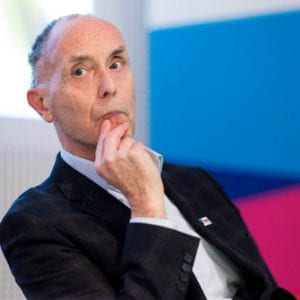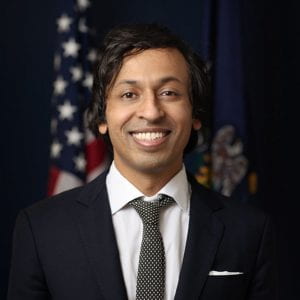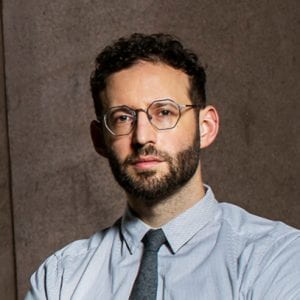APRIL 13, 2021 | 12:00 pm EDT | REGISTER HERE
To guarantee healthy, carbon-free homes across the United States, we need to build green social housing at scale. And there’s no better model than Vienna, the global capital of social housing—and a city frequently ranked as the best in the world to live in. Vienna has been building social housing for a hundred years. This housing is known for both its architectural innovation and quality, and for the financial sustainability of the model. Any discussion of building green social housing at scale in the United States must learn from the Vienna model.
Today, nearly a third of Vienna’s city’s population lives in city-run housing, while another third lives in housing that is also subsidized and insulated from market pressures. But to learn all the lessons from Vienna’s social housing model, we must dig beneath the surface to uncover what’s most promising—and what isn’t working. How does Vienna currently fund new social housing, and the maintenance of housing that already exists? How is it incorporating climate and sustainability issues into its projects? And how well is it doing in terms of housing immigrants and refugees, who suffer racism and processes of stigmatization in Austria?
To answer these questions, we have one of the world’ foremost experts on Vienna’s housing model. Wolfgang Förster directs PUSH Consulting, a Vienna-based private consulting company in the areas of urban planning and housing which advises both policy makers and public, not-for-profit and private developers. Förster is also Former Deputy Director of Vienna Housing Fund, and Former Head of Vienna State Housing Research Department. He has organized a global exhibit on Vienna’s social housing model, is the co-editor of The Vienna Model 2: Housing for the City of the 21st Century (Jovis 2018), and is the editor of 2000 Years of Housing in Vienna: From the Celtic Oppidum to the Residential Area of the Future (Jovis 2020).
Those of us in the United States must also discuss which elements of Vienna’s model are most applicable, which errors are most relevant, and which ideas demand the greatest ongoing discussion. To develop that debate, we will hear responses to Förster’s presentation from Nikil Saval, the State Senator for Pennsylvania’s First District, who was elected in 2020 as a Homes Guarantee candidate committed to a dramatic expansion of green, affordable housing options in Philadelphia; and from Ilona Duverge, Co-Founder and NYC Director of Movement School, and the leading grassroots organizer for a Green New Deal for Public Housing.
Daniel Aldana Cohen, Assistant Professor of Sociology, Director of the Socio-Spatial Climate Collaborative, or (SC)2, will moderate. He has argued for a Green New Deal for Housing inspired by the Vienna model; he led the research for the Green New Deal for Public Housing Act introduced in 2019 by Rep. Alexandria Ocasio-Cortez and Sen. Bernard Sanders.
Speaker:
Respondents:
Moderator:
Green Social Housing at Scale:
Lessons from Vienna’s social housing on project finance, housing immigrants, and climate-friendly urbanism
APRIL 13, 2021 | 12:00 pm EDT | REGISTER HERE

To guarantee healthy, carbon-free homes across the United States, we need to build green social housing at scale. And there’s no better model than Vienna, the global capital of social housing—and a city frequently ranked as the best in the world to live in. Vienna has been building social housing for a hundred years. This housing is known for both its architectural innovation and quality, and for the financial sustainability of the model. Any discussion of building green social housing at scale in the United States must learn from the Vienna model.
Today, nearly a third of Vienna’s city’s population lives in city-run housing, while another third lives in housing that is also subsidized and insulated from market pressures. But to learn all the lessons from Vienna’s social housing model, we must dig beneath the surface to uncover what’s most promising—and what isn’t working. How does Vienna currently fund new social housing, and the maintenance of housing that already exists? How is it incorporating climate and sustainability issues into its projects? And how well is it doing in terms of housing immigrants and refugees, who suffer racism and processes of stigmatization in Austria?
To answer these questions, we have one of the world’ foremost experts on Vienna’s housing model. Wolfgang Förster directs PUSH Consulting, a Vienna-based private consulting company in the areas of urban planning and housing which advises both policy makers and public, not-for-profit and private developers. Förster is also Former Deputy Director of Vienna Housing Fund, and Former Head of Vienna State Housing Research Department. He has organized a global exhibit on Vienna’s social housing model, is the co-editor of The Vienna Model 2: Housing for the City of the 21st Century (Jovis 2018), and is the editor of 2000 Years of Housing in Vienna: From the Celtic Oppidum to the Residential Area of the Future (Jovis 2020).
Those of us in the United States must also discuss which elements of Vienna’s model are most applicable, which errors are most relevant, and which ideas demand the greatest ongoing discussion. To develop that debate, we will hear responses to Förster’s presentation from Nikil Saval, the State Senator for Pennsylvania’s First District, who was elected in 2020 as a Homes Guarantee candidate committed to a dramatic expansion of green, affordable housing options in Philadelphia; and from Ilona Duverge, Co-Founder and NYC Director of Movement School, and the leading grassroots organizer for a Green New Deal for Public Housing.
Daniel Aldana Cohen, Assistant Professor of Sociology, Director of the Socio-Spatial Climate Collaborative, or (SC)2, and a leading researcher around housing and climate justice will moderate.
Speaker:
Respondents:
Moderator:




